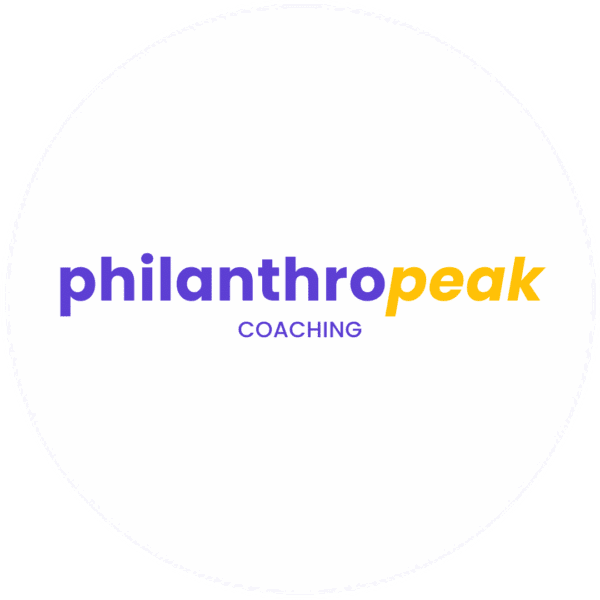Understanding RSD ADHD: Navigating the Challenges of Rejection Sensitive Dysphoria in Daily Life
Table of Contents
ToggleLiving with ADHD isn’t just about dealing with attention issues or hyperactivity. For many, there’s another layer called Rejection Sensitive Dysphoria (RSD). It’s like having a super sensitive radar for rejection or criticism, even when it’s not really there. This can make daily life a rollercoaster of emotions, especially for those with ADHD. Understanding RSD and how it ties into ADHD can be a game-changer. It helps in figuring out why certain situations feel so intense and how to better handle them.
Key Takeaways
- RSD is a common but often misunderstood aspect of ADHD, leading to heightened emotional responses.
- Managing RSD involves building emotional resilience and seeking support from understanding communities.
- Transforming the challenges of RSD and ADHD into strengths can lead to personal growth and improved relationships.
Exploring the Connection Between RSD and ADHD
Understanding Rejection Sensitive Dysphoria
Rejection Sensitive Dysphoria (RSD) is a term that describes the intense emotional pain triggered by perceived or actual rejection. People with RSD often feel as if they are being criticised or rejected even when no such intent exists. This condition is especially common in individuals with ADHD, though it can occur in those without it too. RSD is not officially recognised as a separate diagnosis, but it’s a significant issue for many.
The Emotional Impact of RSD on Individuals with ADHD
For those with ADHD, RSD can be particularly challenging. The emotional pain can be overwhelming, leading to feelings of inadequacy and low self-esteem. Often, these individuals experience heightened emotional responses to situations that others might brush off. This can affect relationships, work, and general well-being. Coping with these intense feelings can be exhausting and often requires a lot of emotional energy.
How ADHD Symptoms Exacerbate RSD
ADHD symptoms like impulsivity and hyperactivity can make RSD worse. Impulsivity might lead to reacting before thinking, which can exacerbate feelings of rejection. Similarly, the hyperactive mind may dwell on negative thoughts, making it hard to let go of perceived slights. Additionally, the tendency to miss social cues can lead to misunderstandings, further feeding into the cycle of rejection sensitivity.
Understanding the link between ADHD and RSD is crucial. It helps in recognising that these intense feelings aren’t just mood swings but are rooted in the way the ADHD brain processes emotions. This insight is the first step towards managing and coping with the challenges that come with RSD.
Strategies for Managing RSD in Daily Life

Building Emotional Resilience
Living with Rejection Sensitive Dysphoria (RSD) can feel like you’re constantly walking on eggshells, waiting for the next emotional blow. But building emotional resilience is key. Start by recognising your triggers. What sets off those intense feelings of rejection? Once you know, you can prepare for them. Practise self-compassion; treat yourself kindly, like you would a friend who’s having a tough time. And don’t forget to celebrate your small victories—every step forward counts.
Effective Communication Techniques
Communication can be tricky when you’re dealing with RSD. Sometimes, it feels like every word carries the weight of the world. To ease this, try to be clear and direct. Avoid misunderstandings by saying exactly what you mean. Practise active listening; it’s more than just hearing words—it’s about understanding them. And if things get heated, take a step back, breathe, and revisit the conversation when you’re calmer.
Seeking Professional Support
Sometimes, navigating RSD alone can be overwhelming. That’s when professional help comes into play. Therapists can offer strategies tailored to your needs, helping you cope with those challenging emotions. Consider joining a support group where you can share experiences and learn from others who understand what you’re going through. Remember, seeking help isn’t a sign of weakness; it’s a step towards a healthier, happier you.
The Role of Support Systems in Navigating RSD

Creating a Supportive Environment
Living with Rejection Sensitive Dysphoria (RSD) alongside ADHD can be overwhelming. A supportive environment is like a safety net, catching you when things get tough. It’s essential to surround yourself with people who get it. Whether it’s family, friends, or a community group, having folks around who understand RSD can make a world of difference.
- Open Communication: Talk openly with those around you about your needs and how RSD impacts your life.
- Set Boundaries: Clearly define what you need from others to feel supported.
- Create Safe Spaces: Whether it’s a quiet corner in your home or a regular meeting with a support group, having a designated place where you feel secure is vital.
A supportive environment isn’t just about reducing symptoms; it’s about creating a space where you can thrive.
Engaging with ADHD Communities
Connecting with others who share similar experiences can be incredibly validating. ADHD communities, whether online or in-person, offer a platform to share stories, tips, and encouragement.
- Join Support Groups: Look for local or online groups where you can connect with others facing the same challenges.
- Share Experiences: Talking about your journey can help others and provide you with new perspectives.
- Learn Together: These communities often share resources and strategies that you might find helpful.
The Importance of Family and Friends
Family and friends play a huge role in managing RSD. Their understanding and support can help ease the emotional burden.
- Encouragement: A little motivation from them goes a long way.
- Understanding: If they learn more about ADHD, they can support better.
- Accountability: Checking in on progress can keep things on track.
Having a supportive network of family and friends can make a world of difference. It’s not just about help; it’s about sharing the journey.
Transforming Challenges into Opportunities
When you think about ADHD, the first thing that might pop into your head is the challenges it brings. But let’s flip that script. ADHD isn’t just about hurdles; it’s a doorway to some pretty unique strengths. People with ADHD often have this incredible ability to hyperfocus. It’s like having a superpower that lets you dive deep into tasks that truly captivate you. Sure, staying on track with mundane stuff can be tough, but when you’re in the zone, your productivity can skyrocket.
Developing Coping Mechanisms
Dealing with ADHD can feel like a never-ending juggling act. But guess what? You can turn those struggles into strengths. Start by recognising what works for you and what doesn’t. Maybe it’s setting a timer for tasks or using apps to keep you organised. Find your rhythm and stick to it. And hey, don’t forget to give yourself a break when things don’t go as planned.
Celebrating Small Victories
Success isn’t just about the big stuff. It’s about recognising the small steps too. When you hit a milestone, no matter how tiny, give yourself a pat on the back. And when things don’t go as planned, don’t beat yourself up. Learn from it and move on. Tracking progress helps you see how far you’ve come, even if it’s just baby steps. Remember, it’s all part of the journey.
Building resilience and adaptability not only helps in managing ADHD but also enhances your overall quality of life. It’s about finding what works for you and sticking with it, even when things get tough.
By focusing on these strategies, you can transform challenges into opportunities for growth and success.
Facing challenges can be tough, but they can also lead to great opportunities. When we change our perspective, we can find new paths to success. If you’re looking for ways to turn your struggles into strengths, visit our website for helpful tips and resources. Let’s embrace the journey together!
Conclusion
Living with Rejection Sensitive Dysphoria (RSD) and ADHD can feel like a constant uphill battle, but understanding these challenges is the first step towards managing them. It’s about finding what works for you, whether it’s building a supportive network, seeking professional help, or simply being kinder to yourself. Remember, you’re not alone in this journey. Many face similar struggles, and sharing experiences can be a source of strength. It’s okay to take small steps and celebrate those little victories. Life with RSD and ADHD might be tough, but with patience and persistence, it’s possible to navigate through the hurdles and find a path that suits you. Keep pushing forward, and don’t hesitate to reach out for support when you need it.


